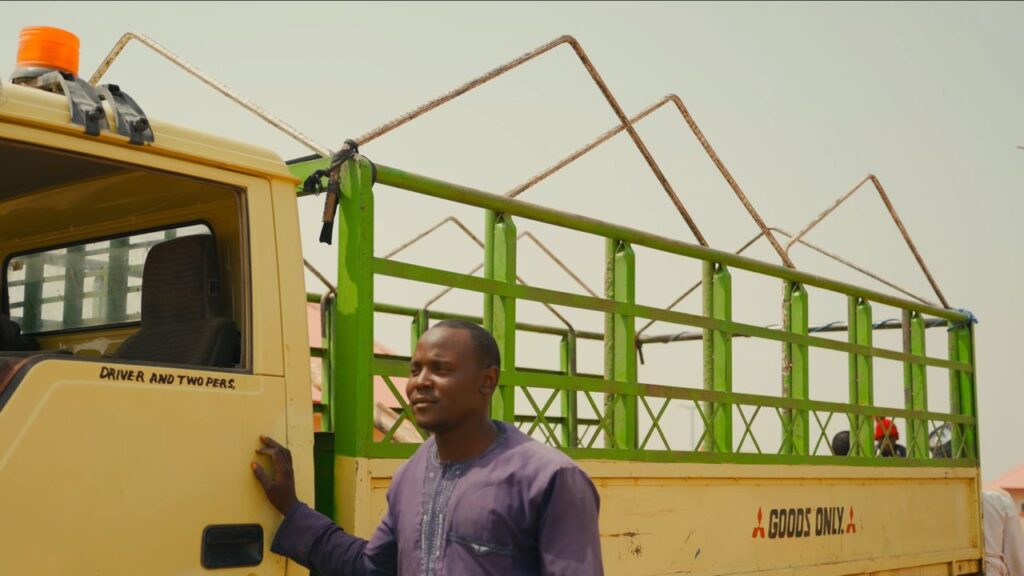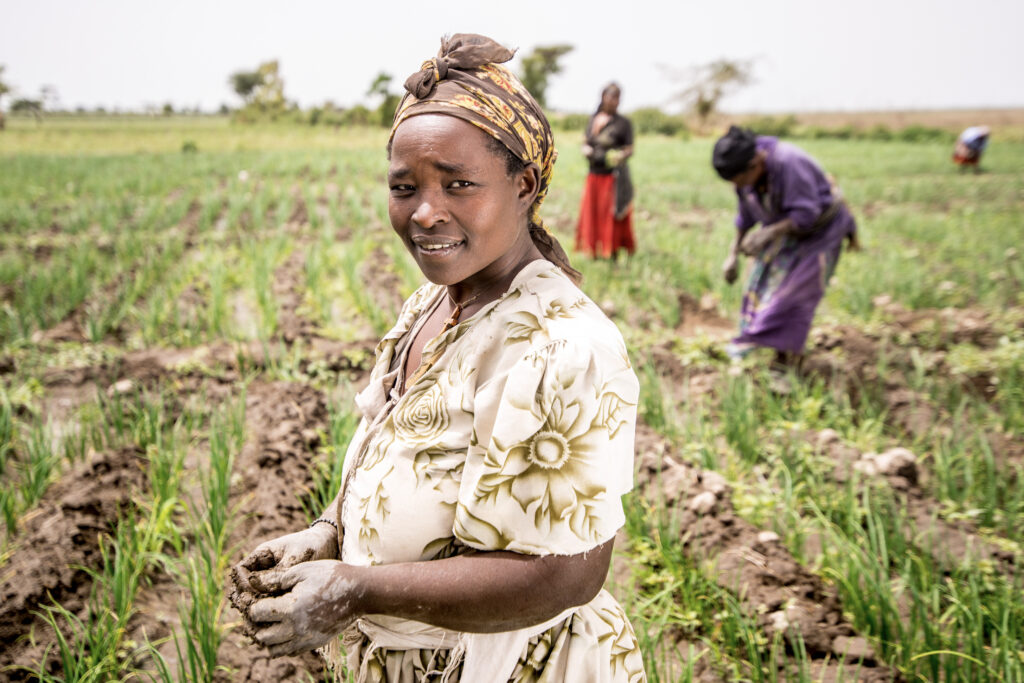
For Hamisu Abdullahi, a 35-year-old from Jenau in Kaduna State, Nigeria, life has always followed a familiar rhythm. After finishing his junior secondary education, he stepped into the path set by his father, a seasoned transporter who had spent more than 60 years moving farm produce across the region.
From a young age, Hamisu learned the business while riding beside his father between Dutsen Wai and Kurmin Kogi, two key agricultural market sites in Kaduna State.
Learning this job from his father helped him understand the market and the needs of both farmers and traders, prompting him prioritize the need for produce to reach the market in good condition, even though his income and opportunities may not be perfectly predictable.
In 2023, his business as transporter became more structured when he was introduced to HortiNigeria through the National Tomato Growers Processors and Marketers Association of Nigeria (NATPAN), when the program partnered with Tomato Jos to launch an outgrower strategy designed to benefit 2,000 local farmers. In this transformative model, farmers would grow tomatoes, and Tomato Jos would guarantee a ready market by purchasing the produce directly.
“This was different. The market was waiting for us. We just had to deliver, and we knew we would be paid.”
Hamisu Abdullahi
For Hamisu, this initiative was an opportunity to work within a reliable system. He was contracted to transport tomatoes from farms in Kubau straight to the Tomato Jos processing facility in Igabi. Unlike the traditional market runs, where prices could fluctuate and demand could be unpredictable, this arrangement came with certainty.
Over the course of the supply period, Hamisu delivered four truckloads of tomatoes, each carefully packed with about 200 crates each weighing 25kg. He reported the total value of their transportation services to be nearly 500,000 naira (about U.S. $326.72).
The income stood out to Hamisu, but importantly, so did the stability. The guaranteed market meant there were no wasted trips and no bargaining under pressure. He could plan his work, manage his time, and see the results clearly in his earnings.
“This was different,” Hamisu reflected. “The market was waiting for us. We just had to deliver, and we knew we would be paid.”
The program opened Hamisu’s eyes to a new way of doing business – one that brought steady income. In helping to build a viable tomato value chain in Kaduna State, he was part of a system that worked effectively and efficiently, for himself and for others involved.
HortiNigeria (2021-2025) is implemented through a consortium led by IFDC that includes East-West Seed Knowledge Transfer (EWS-KT), Wageningen University and Research (WUR), and KIT Royal Tropical Institute and is funded by the Embassy of the Kingdom of the Netherlands in Nigeria.





